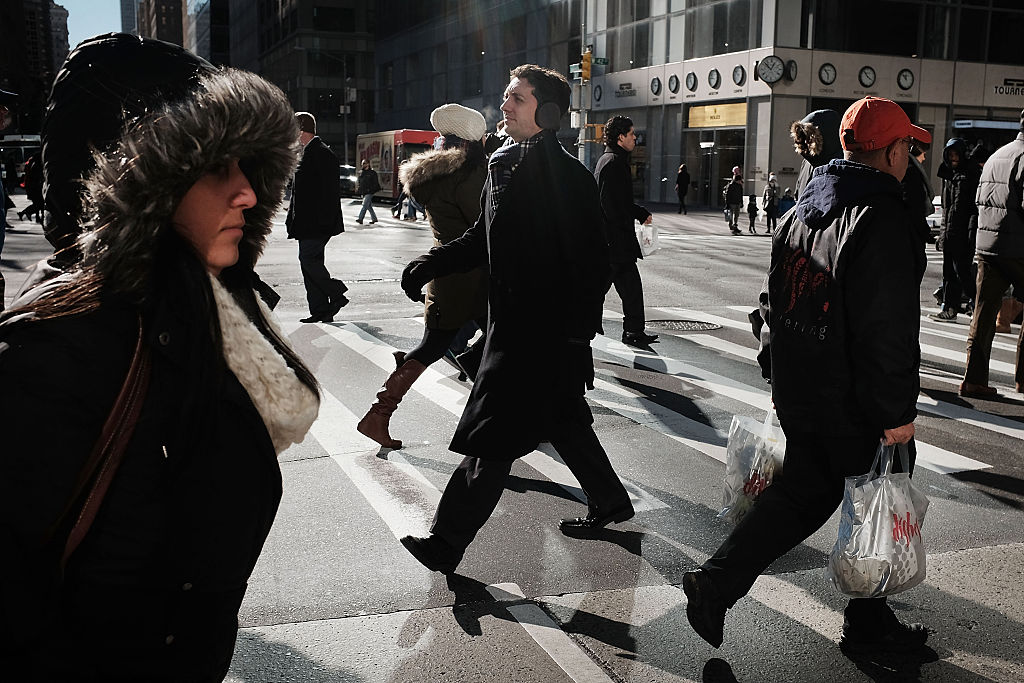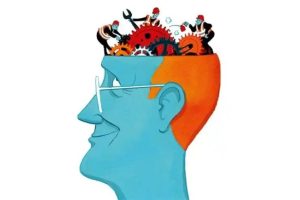Rarely has a question stopped me in my tracks quite so abruptly. It was a Wednesday at 8:30 a.m., and rushing to get to a meeting on time, I walk-jogged past my building’s extremely friendly Jamaican doorman. “Ohh-kay,” he greeted me characteristically with a curt nod and a little wave. “How are you?” I replied, not missing a beat. Then we both got on with our days.
Except I didn’t. I’d barely stepped out into the crisp morning air when it hit me with the force of an Oxford English Dictionary tumbling from the window of the apartment above me: what had just happened? After two Covid-warped years of living in New York City, of calmly repeating myself, softening my London-honed consonants and exaggerating my vowels in the interest of making sure the barista knew I wanted my coffee black and the dentist had definitely understood that I did not wish for my tooth to be extracted, I’d just unlocked the next level of vernacular mastery.
With effortless aplomb, I’d performed the ultimate rhetorical vignette of the busy Manhattanite: I’d asked a question with such nonchalance that it had left absolutely no doubt at all in anyone’s mind that an answer would be entirely superfluous — awkward, nay rude, even. And what’s more, I’d placed just the right emphasis on the middle word: “are.” No longer was I a fresh-off-the-boat European who inquired “how are you?” and then waited wide-eyed for an insincere answer. No, I was a dyed-in-the-wool New Yorker who knew exactly how to greet a doorman. Next stop, green card.
A few hours later I asked my friend from Kansas whether he’d noticed anything different about me. I could see him do a quick inventory of my physical appearance: same hair, no obvious sign of pregnancy. “Erm, no?” he said carefully. “Have you noticed how you rarely ask me to repeat myself anymore?” I helped him out. “I’m starting to talk like you.”
My theory was thrown into sharp relief a few weeks later when a friend from Bristol visited. Suddenly, hearing myself with her ears, I sounded so strange. I asserted that it was “cold out” rather than “cold outside,” but far more obvious was the flashlight, the sidewalk, the stroller, and the vacation, that had supplanted the torch, the pavement, the pram, and the holiday. Sweets had become candy, autumn had turned to fall. Jumpers to sweaters and rucksacks to backpacks. We both had pants on, but one pair was not like the other. Her pants were underwear. Mine were not.
Humans are biologically wired to be incessant imitators. We mimic gestures, and yes, dialects too. Research from the University of California published in 2010 found that imitating an accent subconsciously — as I’ve clearly been doing — usually stems from a desire to feel empathy with a person or to want to foster a connection. In other words, if you like someone and want to be in their social circle, you’re more likely to try to speak like them.
It’s taken me a while to digest the reality of living in New York. After a decade of calling London home, and being based in various European cities before that, I initially bristled at the rancid smells that catch you off guard on every other corner from the Bronx to Brooklyn, at the rudeness of locals who are always in a rush and constantly annoyed at something. I hated the rats that scuttle across the street and sometimes have the indignity of dying and then being tripped over or, worse, stepped on. There’s rubbish everywhere, except these days I refer to it as trash. And it’s expensive. Oh so extortionate. Six dollars for decent coffee. “Come again?” my Kansas friend would retort. But my evolving language might just signal a softening in my attitude, and a quietly swelling appreciation for the city around me.
About a year into living here, I was having lunch with a friend outside a bakery when a woman sitting nearby gently interrupted us. My friend was preparing to move apartments and several folded cardboard boxes were resting against our table. “Are you leaving New York?” the stranger asked with palpable concern, gesturing towards the boxes. My friend reassured her that she was just relocating from Harlem to Queens. “Phew,” the stranger said. “I always get sad when I see people go.”
A year later, that stranger and I are friends. She’s lived in New York for decades. She’s not rude or in a rush. She also thinks that the rats are gross and that it sometimes stinks to the high heavens. And by coincidence, she happens to be a linguist. Many of our conversations are about the idiosyncrasies of language, about weird Americanisms she grew up with and nonsensical British terms that I still use without thinking: being full of beans, or chuffed, or knackered, or in a kerfuffle. I just hope that a few years down the line we’ll still have enough to talk about. Getting lost in translation will always be far more fun than being lost for words.


















